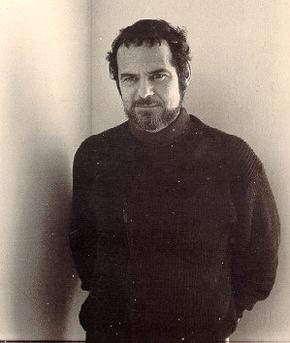Tags
American composers, Boston Symphony Orchestra, classical, classical music, composers, English composers, opera, orchestra, philharmonic
Saturday, February 6, 2016
You can listen to the Classical Music Almanac Podcast Daily here.
Birthdays

Henry Litolff
In 1818 Henry Litolff was born in London, England. Born in London, he was the son of a Scottish mother and an Alsatian father. His father was a violinist who had been taken to London as a prisoner after being captured while fighting for Napoléon in the Peninsular War. He began his musical education under his father, but in 1830, when he was twelve he played for the renowned virtuoso pianist Ignaz Moscheles, who was so impressed that he gave him free lessons starting that same year. Litolff began to give concerts when he was fourteen. His lessons with Moscheles continued until Litolff eloped in 1835, at the age of 17, to Gretna Green, to marry 16-year-old Elisabeth Etherington. The couple moved to Melun, and then to Paris. He separated from Elisabeth in 1839 and moved to Brussels, and around 1841 moved to Warsaw where he is believed to have conducted the Teatr Narodowy (National Theatre) orchestra. In 1844 he travelled to Germany, gave concerts and taught the future pianist-conductor Hans von Bülow. The following year, he returned to England with the idea of finally divorcing Elisabeth; but the plan backfired and he ended up not only heavily fined but imprisoned. He managed to escape and flee to the Netherlands. He became friends with music publisher Gottfried Meyer and, after Meyer’s death, married his widow Julie in 1851 (after finally being granted a divorce from Elisabeth as a new citizen of Brunswick). This second marriage lasted until 1858, when he divorced her and once again moved to Paris. He died at Bois-Colombes near Paris. 1

Stephen Albert
In 1941 Stephen Albert was born in New York City. He began his musical training on the piano, French horn, and trumpet as a youngster. He first studied composition at the age of 15 with Elie Siegmeister, and enrolled two years later at the Eastman School of Music, where he studied with Bernard Rogers. Following composition lessons in Stockholm with Karl-Birger Blomdahl, Albert studied with Joseph Castaldo at the Philadelphia Musical Academy (BM 1962); in 1963 he worked with George Rochberg at the University of Pennsylvania. In 1965 he won a Rome Fellowship to study in Rome at the American Academy. From 1985 to 1988 he worked as the Seattle Symphony‘s composer-in-residence. His notable students included Daniel Asia. Albert was killed in an automobile accident on Cape Cod on December 27, 1992. He won the 1985 Pulitzer Prize for Music for his Symphony No. 1, RiverRun. He posthumously won a Grammy Award in 1995 in the Best Classical Contemporary Composition category for his Cello Concerto as performed by Yo-Yo Ma in a 1990 recording with the Baltimore Symphony Orchestra, conducted by David Zinman. The slow movement and emotional core of Christopher Rouse‘s 1994 Symphony No. 2 is dedicated to the memory of Albert, who was a colleague and close friend of Rouse. The work is recorded on TELARC CD-80452, issued in 1997. 2
Premieres
In 1813 Gioachino Rossini’s opera Tancredi was premiered in Venice.
In 1851 Robert Schumann conducted the premiere of his Symphony No. 3 (Rhenish).
In 1930 Albert Roussel Petite Suite for orchestra was premiered in Paris.
In 1933 Henry Brant’s Angels and Devils for solo flute and flute ensemble was premiered at a Pan-American Association of Composers concert at Carnegie Chapter Hall in New York City, with flautist Georges Barrère as the soloist. Also premiered that night was Charles Ives’ Afterglow, Ann Street, and Like a Sick Eagle. Brant accompanied soprano Judith Litante at the piano”.
In 1941 Paul Hindemith’s Cello Concerto was premiered by the Boston Symphony conducted by Serge Koussevitzky, with Gregor Piatigorsky the soloist.
In 1944 Arnold Schoenberg’s Piano Concerto was premiered by the NBC Symphony Orchestra conducted by Leopold Stokowski, with Eduard Steuermann as soloist.
In 1959 Francis Poulenc’s opera La voix humaine (The Human Voice) was premiered in Paris at the Opéra Comique.
In 1976 John La Montaine’s opera Be Glad, Then, America was premiered.
In 1996 Stephen Paulus’ Dramatic Suite for flute, viola, cello and piano was premiered by members of the Chamber Music Society of Lincoln Center.
On This Day in Classical Music
In 1922 Thomas Beecham’s British National Opera Company made its inaugural performance with a performance of Verdi’s Aida in Bradford, England.
Recommend Listening
Henry Litolff’s Scherzo from Concerto Symphonique No. 4 in D minor, Op. 102 with Misha Dichter sololist and the Academy of St. Martin-in-the-Fields, conducted by Sir Neville Marriner.
- Wikipedia contributors, “Henry Litolff,” Wikipedia, The Free Encyclopedia, https://en.wikipedia.org/w/index.php?title=Henry_Litolff&oldid=697530417 (accessed February 3, 2016).
- Wikipedia contributors, “Stephen Albert,” Wikipedia, The Free Encyclopedia, https://en.wikipedia.org/w/index.php?title=Stephen_Albert&oldid=703036724 (accessed February 6, 2016).
